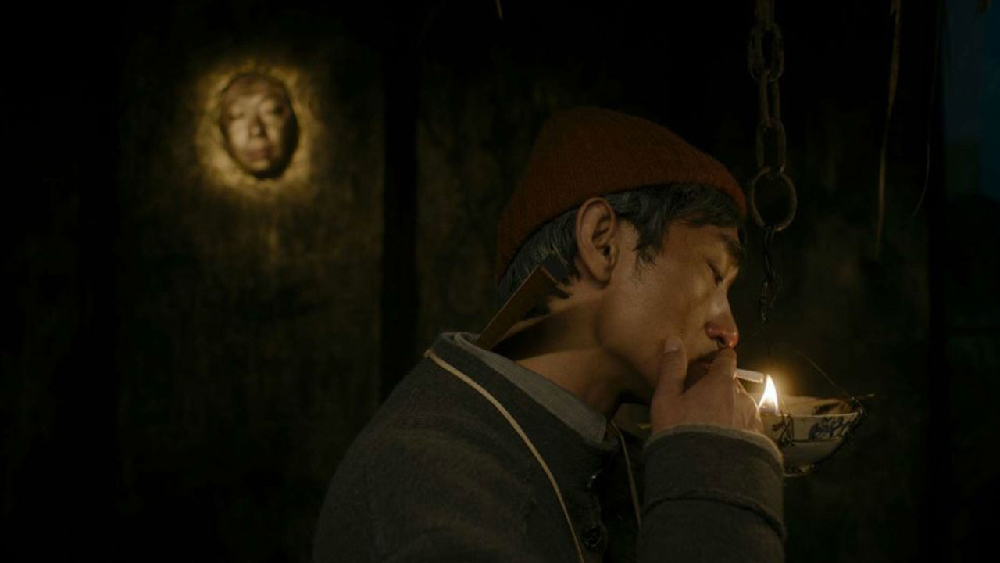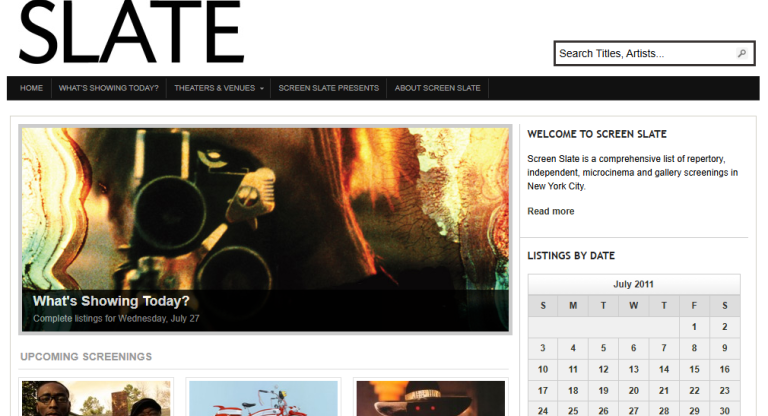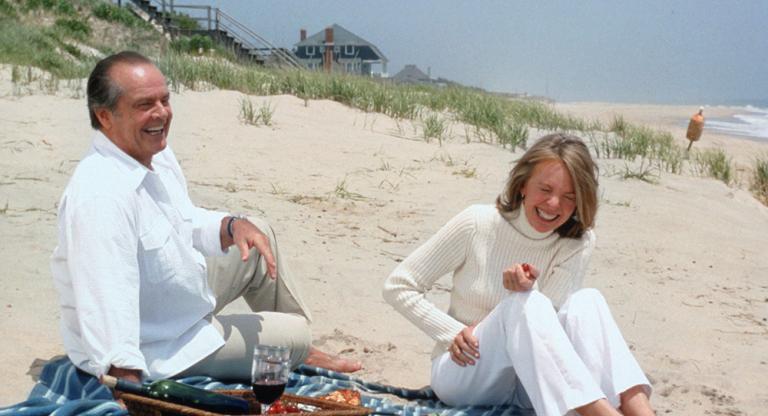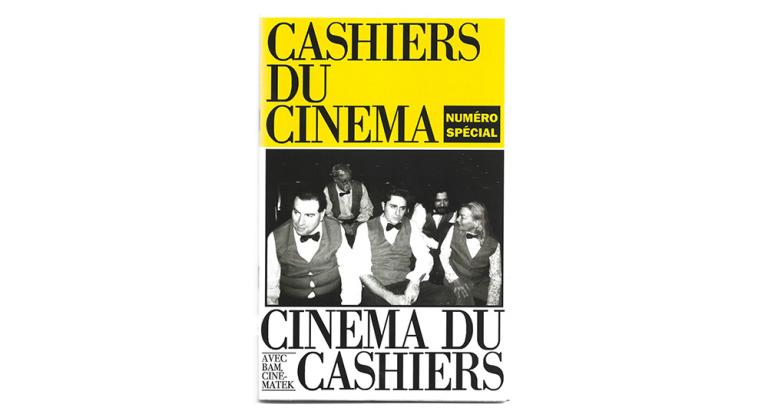True to its title, Qiu Jiongjiong’s A New Old Play (2021) operates as a series of contrasts. For his narrative feature debut, the artist and documentarian has crafted a film that simultaneously serves as a detailed account of China’s turbulent political history throughout the 20th century, and a deeply personal work that incorporates elements of his own family’s history. It’s an exploration of traditional Chinese opera forms as much as it is an exercise in Brechtian alienation. It’s a thesis on Chinese thanatology and a satire of the mythology surrounding death and the afterlife that informs our everyday lives.
The film follows the spirit of Qiu Fu, the newly deceased leader of a Sichuan-based opera troupe, as he revisits events from his past life prior to consuming mihuntang, the “soup of forgetfulness” that causes souls to shed all memories and knowledge of their past life. Qiu Fu is accompanied in Diyu—the Taoist concept of the underworld that one must pass through before reincarnation—by Ox-Head and Horse-Face, two guardians of the underworld tasked with retrieving the souls of the dead, yet who spend most of their time drinking, reminiscing, and lamenting their working conditions to their ward.
Each memory Qiu Fu revisits plays out against a constantly changing political backdrop, beginning with his joining the troupe at the age of seven during republican China’s nascent years of the 1920s, and concluding with his final years in the aftermath of the Cultural Revolution of the 1960s and ‘70s. Each institution that ascends to power in his lifetime comes with different implications concerning the role and value of the theater for its own political ends. To Qiu Fu and his colleagues, a regime change may lead to continued patronage, albeit at the expense of becoming propagandists for the nationalist Kuomintang or the Chinese Communist Party, just as easily as it may lead to the scapegoating of artists and other individuals at the fringes of Chinese “political theater” for the industrial failures brought on by the economic reconstructions of the Great Leap Forward.
Qiu (the filmmaker) interweaves these multiple personal, political, and mythological layers, underscoring the ways in which each forms part of a greater societal whole. Events that take place in the political realm have ramifications in the realm of the dead, with the widespread famine of the late ‘50s & early ‘60s leading to overwork and lapses in judgment on the part of Ox-Head and Horse-Face. As time passes, political differences among Qiu Fu’s family and colleagues metastasize into personal strife. Religion itself becomes the perceived enemy of progress; the old customs practiced by some now viewed as ideologically opposed to the revolution campaigned for by others. The longer Qiu Fu lingers in this space between lives, the more these boundaries between the living and the dead, the real and artificial, old and new, become blurred, until the only constant is his theater.
Ironically, the one major figure from Chinese thanatology conspicuously missing from Qiu Fu’s experience in the underworld is Wuchang Gui, whose name translates literally to “Ghost of Impermanence.” Wuchang Gui is the deity charged with escorting souls through Diyu, with the power to reward those who have committed good deeds in their lifetimes, and administer punishment to those who have committed evil. Their absence here speaks volumes, as if the filmmaker is suggesting the figure serves no function to those whose time on Earth has been marked by a state of impermanence, and whose knowledge of what actions were worthy of reward versus punishment was constantly being erased with each of the country’s political reincarnations.
In the end, Qiu Jiongjiong remains hopeful as to the country’s future. New institutions may rise where the old ones once stood, but like castles built on sand, their strength and resiliency are ultimately no match for the shifting tide. To draw from the filmmaker’s own words, enough time passes and eventually waves will bring pearls to the shore.



